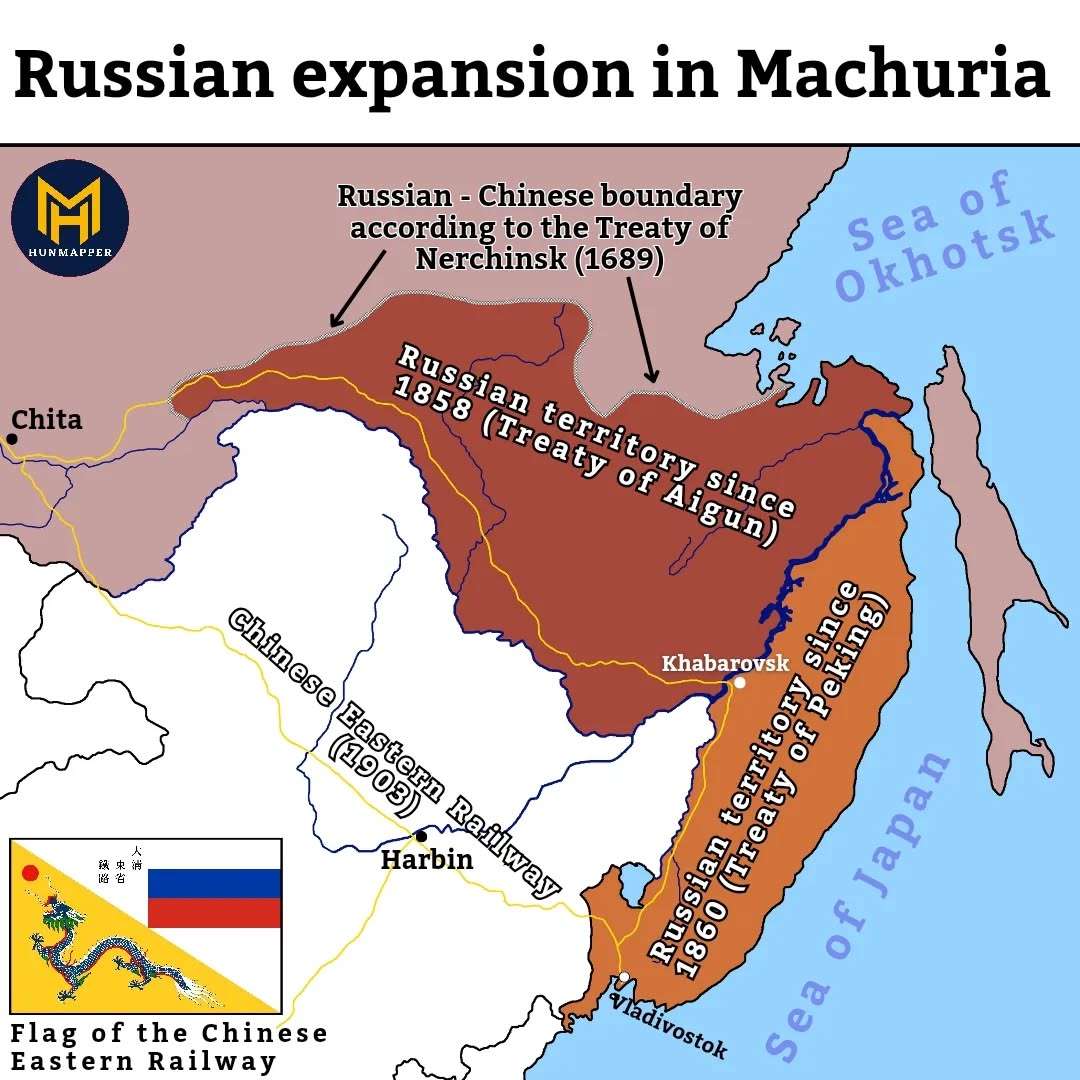Russian expansion in Manchuria
author: hunmapper/instagram, added on: 2025-08-15

hunmapper:
The Russian conquest of Manchuria occurred primarily in the late 19th and early 20th centuries. One significant aspect was the signing of unequal treaties, like the Treaty of Aigun (1858) and the Treaty of Beijing (1860), which granted Russia significant territorial and economic concessions in the region. Cossacks, Russian military groups, played a crucial role in this conquest, often leading expeditions and establishing control. Additionally, the construction of the Chinese Eastern Railway by Russia further solidified its influence in Manchuria, connecting Siberia to the Russian-controlled port of Vladivostok and providing a strategic transportation route.
The unequal treaties, such as the Treaty of Aigun (1858) and the Treaty of Beijing (1860), were pivotal in shaping Russian influence in Manchuria. These agreements, negotiated between Russia and the weakened Qing Dynasty of China, resulted in significant territorial and economic concessions for Russia. The treaties granted Russia control over vast stretches of territory in Manchuria, including strategic ports and access to valuable resources.
One of the most enduring legacies of Russian involvement in Manchuria was the construction of the Chinese Eastern Railway. This ambitious project, initiated in the late 19th century, aimed to connect the Trans-Siberian Railway to Russia's newly acquired territories in Manchuria. The railway not only facilitated the movement of goods and people but also served as a potent symbol of Russian economic and strategic interests in the region. By controlling the Chinese Eastern Railway, Russia strengthened its hold on Manchuria and exerted considerable influence over the region's development.
Collection: territorial-changes - Tags: russia, manchuria, territorial-changes - Source: instagram.com